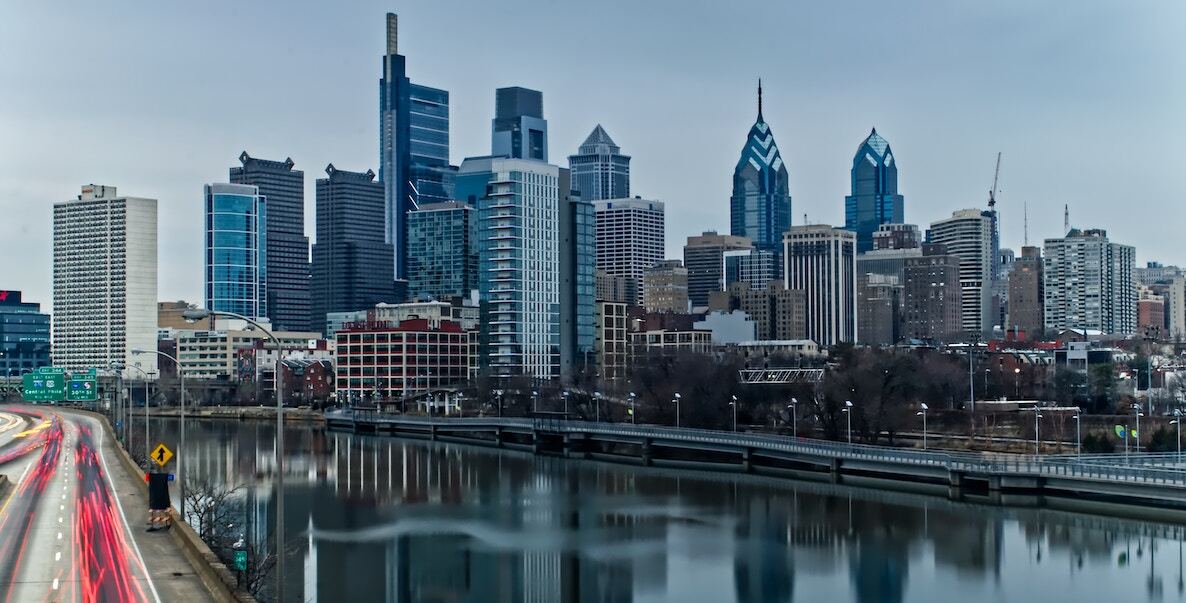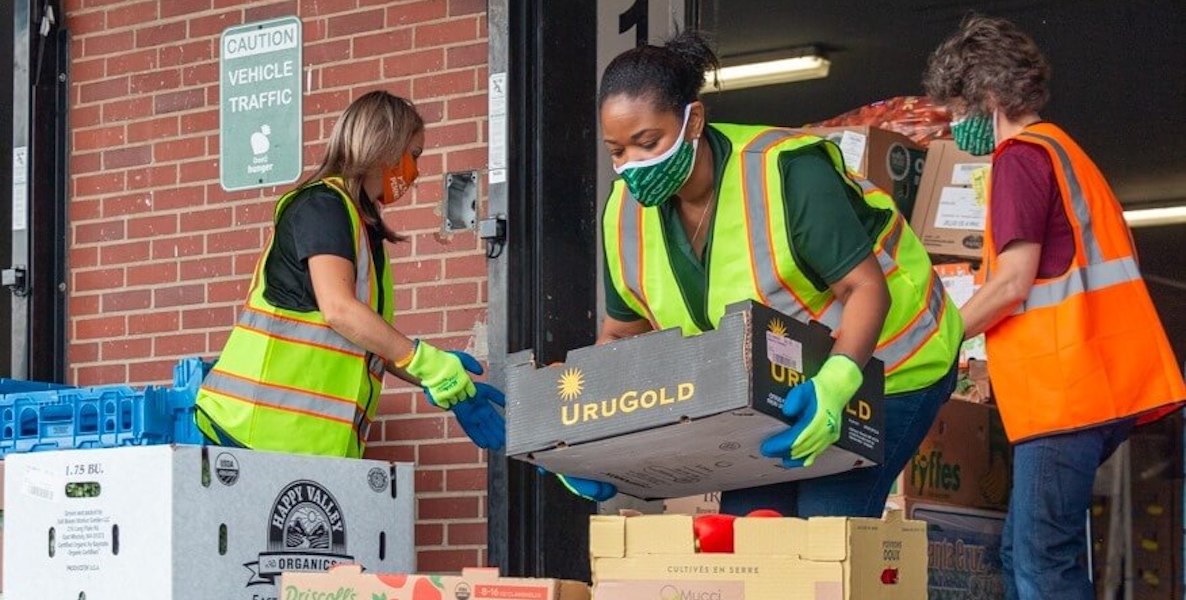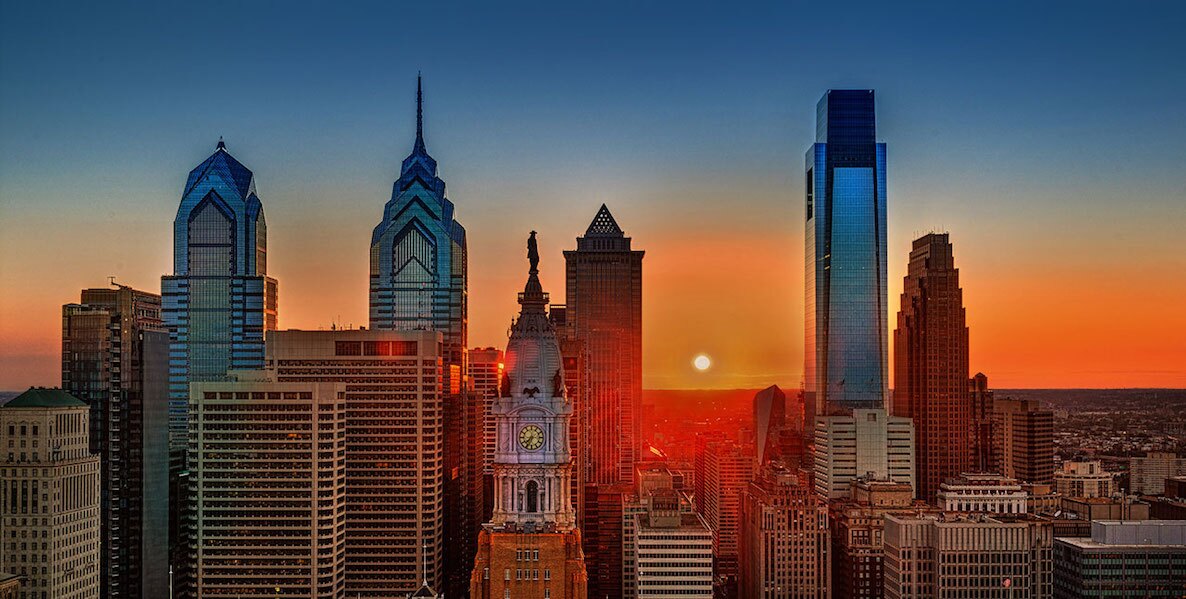Earlier this week, the city announced that applications to Philadelphia’s new Covid-19 Small Business Relief Fund would only be accepted in the $5,000 micro enterprise grant category. The fund had recently been established with a mere $9 million, so already there was no more bandwidth for small business grants of up to $25,000 and loans of up to $100,000.
![]()
To its credit, the Kenney administration knew that a $9 million fund would be insufficient to deal with the economic fallout of Covid-19. In a press conference, Managing Director Brian Abernathy conceded as much, calling the Fund “a start.”
Policymakers knew we’d soon be awash in a tsunami of layoffs and loan defaults. That’s why the Kenney administration asked Councilperson Allan Domb to convene a meeting with the CEOs of the area’s major banks, to see what, together, they might be able to do in order to stem the oncoming tide.
Time was of the essence. Yes, Congress had passed the Payroll Protection Program as part of the CARES Act, which included some $350 billion earmarked for small businesses. But, as Bruce Katz outlined yesterday, it was unlikely that the federal bureaucracy would be able to get dollars into the hands of those who need it soon enough to keep the proverbial lights on.
The Small Business Administration struggled in the past to manage a $23 billion package; what were the chances they’d seamlessly meet this 15-times challenge, at a time when mom and pop stores needed help paying bills right now?
As Katz suggests, the answers would have to be local. And, locally, businesses have been stepping up. Witness Comcast’s Brian Roberts, giving $5 million to the schools for laptops and establishing a $500 million fund for his employees, or billionaire Michael Rubin, who has turned his Fanatics factory floor into a manufacturer of personal protection equipment for health care workers.
Or Brandywine Realty Trust in partnership with the Enterprise Center, which, this week, announced a $350,000 fund offering grants to help small and minority-owned construction and construction-related businesses weather the Covid-19 storm.
We shouldn’t ignore the bad headlines, but shouldn’t we embrace the banks who drive local opportunity and keep communities afloat? Isn’t there such a thing as solutions-oriented banking?
But what of the banks? After all, what’s needed most is not economic stimulus so much as an economic pause. When Congress passed its $2.2 trillion package, MIT’s Jonathan Parker said as much, telling axios.com that the intention was not to stimulate growth in order to offset a downturn, as in 2008, but rather to prevent a wave of mass business closures not seen since the Great Depression.
“The idea is to freeze time,” Parker said, “and let people emerge with not a huge amount of debt—not starving, not being evicted…[leading to] a V-shaped recovery where people find themselves roughly where they were when we went in.”
That’s where banks—vilified in 2008—can come in and play hero. Domb asked local banking leaders to agree to a 3- to 6-month forbearance on residential, commercial and small business loans in the city. That would enable local business owners and workers to defer payments without penalty to the end of their loan terms.
![]() “Every bank I spoke to agreed, on a case-by-case basis,” Domb says. “If you’re someone with $3 million in the bank, obviously, there’s no need for forbearance. I get that. But for people who need relief, if we can get this done, we’d be talking about billions of dollars. This could be the key to all of us getting through this.”
“Every bank I spoke to agreed, on a case-by-case basis,” Domb says. “If you’re someone with $3 million in the bank, obviously, there’s no need for forbearance. I get that. But for people who need relief, if we can get this done, we’d be talking about billions of dollars. This could be the key to all of us getting through this.”
Domb says he was blown away by the number of banks who signed on almost before he could finish asking: Bank of America, Truist (formerly BB&T), Bryn Mawr Trust, Firstrust, Customers Bank, OceanFirst Bank, Santander, Mid Penn Bank, M&T Bank, Republic Bank, TD Bank, and WSFS.
“Unlike in ’08 and ’09, the regulators in Washington were out in front of this issue,” explains WSFS CEO Rodger Levenson. “They knew we’d need a temporary pause and gave us guidance that we could offer a pause on people’s payments for up to 6 months without having to classify it on our books as a problem, as a delinquency. That was a big message to receive. It gave us air cover. We could support our customers and not worry about the ramifications.”
I know, it seems crazy to look to banks to save us from fiscal ruin at a time when, politically, the masses have been seeming to line up against them, bearing pitchforks.
In just the last couple of weeks, Levenson says, any customer—commercial or personal—who has asked for up to six months of forbearance, has gotten it, “no questions asked.”
“I don’t have updated numbers, but as of Monday of this week, we’d done close to 1,000 of these loan modifications, totaling about $1 billion,” Levenson says. “And we expect significantly higher volume. This is a circumstance that’s not the result of anyone’s behavior, so this is just the right thing to do.”
Consider the impact if WSFS isn’t acting alone. “I’m talking to other banks every day, and the whole industry is stepping to the plate,” Levenson says.
Indeed, the precedent was set early on in Seattle, where that city’s largest bank, WaFd, dispersed $100 million in expedited loans to businesses hit hard by the city’s shutdown.
Here, In addition to signing onto Domb’s forbearance plan, Firstrust not only contributed $250,000 to the city’s Covid-19 Small Business Relief Fund, it also made a $1 million donation to several nonprofits on the front lines of fighting the pandemic through the family foundation of CEO and Chairman Richard Green.
The Wells Fargo Foundation is donating up to $6.5 million to to public health ![]() efforts, and another $5 million to local communities. Truist has pledged $25 million for aid and supplies to clients, employees and communities, and its charitable arm has contributed $1 million to the CDC Foundation and Johns Hopkins Medicine.
efforts, and another $5 million to local communities. Truist has pledged $25 million for aid and supplies to clients, employees and communities, and its charitable arm has contributed $1 million to the CDC Foundation and Johns Hopkins Medicine.
J.P. Morgan Chase has announced a $50 million global philanthropic commitment to addressing the economic challenges wrought by the pandemic. Bank of America donated $100,000 to the Fund for the School District of Philadelphia to buy Chromebooks for students.
And Bryn Mawr Trust has developed the BMT Covid-19 Personal Relief Loan, an unsecured loan for current customers with no collateral required between $2,500 and $25,000.
Though it’s become an applause line on the political left to lambaste banks and bankers, the truth is more complex. Yes, the banking industry has been a gateway to the middle class and contributes to economic security, at home and globally.
But it has also seemed all too willing to get in bed with anyone for a buck (see: Papers, Panama) and can turn a blind eye to wrongdoing, as when Brooksley Born, Chairwoman of the Commodities Futures Trading Commission in the ’90s, saw the collapse of 2008 coming a decade beforehand, and her warnings about the dangers of complex financial instruments like derivatives were roundly dismissed. Moreover, the industry’s sleight-of-hand practices led to the 2008 meltdown.
But, as James Surowiecki explained it in the pages of The New Yorker, banks are neither good nor evil; what they are is inherently risky. Until they bear “more of the burden of their own risks, rather than sloughing them off on the rest of us”—that is, until they’re funded by less debt—Surowiecki holds that banking will always represent a risk to the economic well-being of us all.
But bankers are nothing if not smart, and an editorial on thebanker.com urges them to take advantage of this crisis and flip that script. “For banks, there is a real opportunity to support customers, employees and societies in a way that was lacking during the financial crisis,” opines the publication in a piece headlined “Banks Must Be Key Player in the Coronavirus Fight.” “This is their moment to recover from the reputational damage done last time when they were seen as the cause of the problem, but with the bill being picked up by everyone.”
That will require forbearance as many of our local banks are embarking on, yes, but even more. “They must start by ending all bonuses and canceling dividends so that the resources of the bank can be focused on helping both retail and business customers with mortgage and loan holidays,” writes thebanker.com.
“If our community is doing well, then our customers are doing well,” says Levenson. “And if our community and customers are doing well, then WSFS is doing well. We think that’s the answer.”
I know, it seems crazy to look to banks to save us from fiscal ruin at a time when, politically, the masses have been seeming to line up against them, bearing pitchforks.
But I remember sitting at a dinner about two years ago next to an ultra-successful international man of high finance in his seventies. I quizzed him on how he got started, and he told a tale about being in his twenties, wanting to start a business, but not owning a single clue. He said that a loan officer in his local bank stayed late with him, after closing, night after night, teaching him how to write a business plan, walking him through the loan application. “I still wouldn’t have a clue without that local bank,” I remember him saying.
We shouldn’t ignore the bad headlines, but shouldn’t we embrace the banks who drive local opportunity and keep communities afloat? Isn’t there such a thing as solutions-oriented banking?
![]() When I ask Levenson if there’s an opportunity here for his industry to be seen as a driver of the solution, rather than the problem, he chuckles. “I hope so,” he says, going on to explain that WSFS, well before notions like social impact and stakeholder primacy entered the lexicon, had long seen itself as essentially community-driven.
When I ask Levenson if there’s an opportunity here for his industry to be seen as a driver of the solution, rather than the problem, he chuckles. “I hope so,” he says, going on to explain that WSFS, well before notions like social impact and stakeholder primacy entered the lexicon, had long seen itself as essentially community-driven.
“Our business model has always been about a virtuous cycle,” he says. “If our community is doing well, then our customers are doing well. And if our community and customers are doing well, then WSFS is doing well. We think that’s the answer.”











